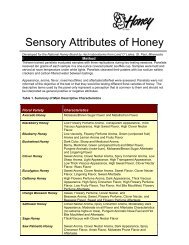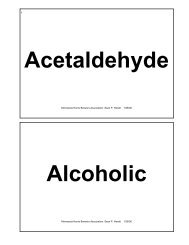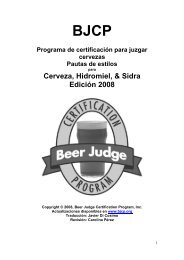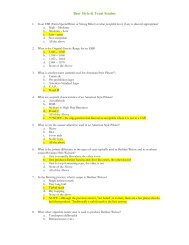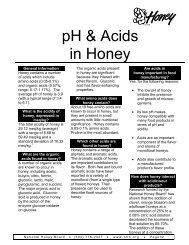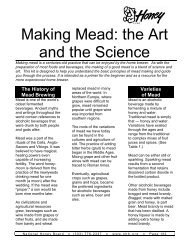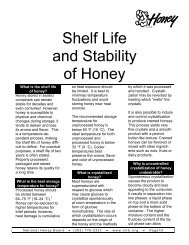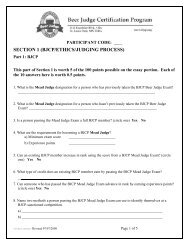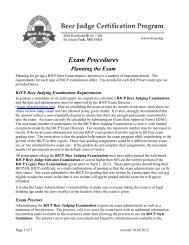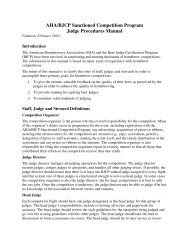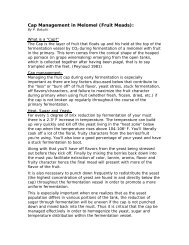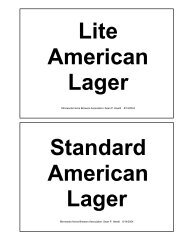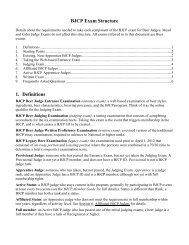Create successful ePaper yourself
Turn your PDF publications into a flip-book with our unique Google optimized e-Paper software.
soft 4 ). The adoption of decoction mashing may have been in part due to the lack of minerals in thewater, along with the use of undermodified malts. The elaborate series of temperature steps in adecoction mash helps the various enzymatic reactions proceed at a reasonable rate, even though theenzymes are working slowly due to the lack of calcium.Water AdjustmentThe waters at these brewing centers may be reproduced by adding various salts to locally availablewater. For additions meant to improve the buffering capacity of the mash, use the volume of your mashfor your calculations. For salt additions to change flavor in the finished beer, the target volume of thefinished beer should be used. The most common salt additions are gypsum (CaSO 4 .2H 2 O -- CaSO 4hydrated with two water molecules), Epsom salts (MgSO 4 .7H 2 O), non-iodized table salt (NaCl),calcium carbonate (CaCO 3 ) and calcium chloride (CaCl 2 .H 2 O). The addition of gypsum and Epsom saltsis known as Burtonizing, since it elevates the hardness and sulfate concentrations to levels similar tothat found at Burton-on-Trent. Other salts may be used, but these are by far the most common additivesin brewing.Further Reading1. Dave Miller, Dave Miller's Homebrewing <strong>Guide</strong> (Garden Way Publishing, Pownal, VT 1996).2. Gregory J. Noonan, New Brewing Lager Beer (Brewers Publications, Boulder, CO, 1996).3. George Fix, Principles of Brewing Science (Brewers Publications, Boulder, CO, 1989).4 “Soft” water simply has low concentration of Calcium and Magnesium cations. It can have higher concentrations ofother dissolved minerals. “Soft” water is the opposite of “hard” water, which makes it “hard” for soap to lather due tohigh concentrations of Calcium and Magnesium. A home water softener operates on the principal of ion exchange,substituting sodium for calcium (not a desirable outcome for brewing). “Soft” and “hard” water are thus not very usefulbrewing terms.43



